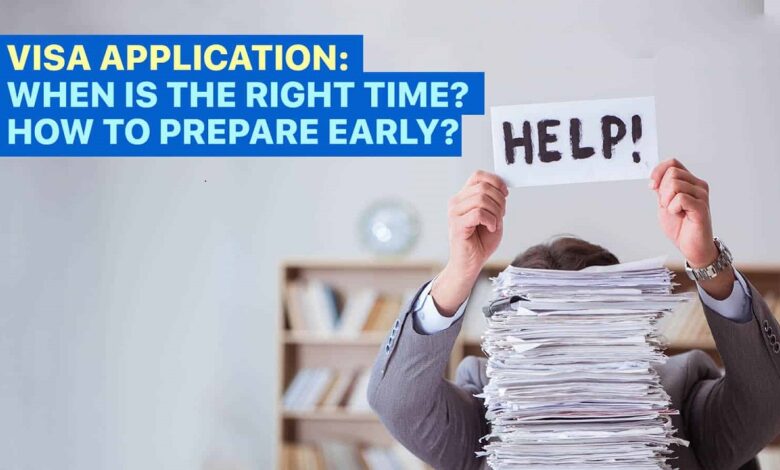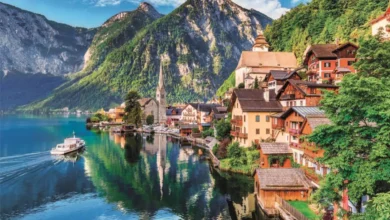When Is the Best Time to Apply for a Holiday Visa?

Have you ever dreamt of spending your holidays exploring a new country, immersing yourself in a different culture, and creating unforgettable memories? Well, the first step to turning that dream into reality is obtaining a holiday visa. But when is the best time to apply for one? Should you do it months in advance or leave it until the last minute? In this article, we will explore the optimal timing for applying for a holiday visa, uncovering tips and tricks that will help you navigate through the bureaucratic maze and ensure smooth sailing towards your next adventure.
Why applying for a holiday visa matters.
Applying for a holiday visa may seem like just another bureaucratic hurdle to jump through before jetting off on your dream vacation. However, it is an essential step that should not be overlooked. The process of obtaining a holiday visa ensures that you have the necessary legal documentation to enter and stay in your chosen destination, granting you peace of mind throughout your trip. Not only does it protect you from potential legal trouble or deportation, but having a valid holiday visa also allows you to fully enjoy and immerse yourself in the culture and experiences of your chosen country.
By applying for a holiday visa, you are also demonstrating respect for the laws and regulations of the country you wish to visit. It shows that as a responsible traveler, you understand the importance of following local rules and guidelines. This respect can go a long way in creating positive relationships between travelers and locals, fostering mutual understanding and appreciation. Additionally, many countries require foreigners to have valid travel documents such as visas as part of their national security measures, ensuring safe travels for all.
Understanding the different types of holiday visas.
Understanding the different types of holiday visas can be a daunting task for those planning to embark on an international adventure. Each country has its own set of visa requirements and categories, making it essential to have a clear understanding of the options available. One common type is the tourist visa, which allows travelers to visit a country for leisure purposes for a limited period. These visas usually come with specific conditions, such as not being permitted to work or engage in any business activities during the stay.
Another popular category is the working holiday visa, which provides an amazing opportunity for young individuals to travel and work in another country. This type of visa allows participants to explore new cultures while earning income through short-term employment opportunities. Working holiday visas are often bilateral agreements between countries, and they provide unique experiences by allowing visitors to immerse themselves in local communities and gain valuable cultural insights.
Lastly, there are also student exchange visas that enable students from one country to study in another temporarily. These programs foster educational mobility and help young people acquire global perspectives while building their academic credentials abroad. Student exchange programs typically include benefits like reduced or waived tuition fees, access to university resources, and even internships opportunities related to their field of study.
By better understanding these various types of holiday visas, individuals can make informed decisions about their travel plans and maximize their experiences abroad. It’s essential to thoroughly research the requirements and restrictions associated with each visa category before applying so that you can ensure a smooth journey filled with unforgettable memories.
Factors to consider when choosing the timing.
Timing is a crucial factor to consider when applying for a holiday visa. One aspect to think about is the peak tourist season of your desired destination. Applying during this time may result in longer processing times and more competition for available visas. On the other hand, choosing the shoulder season or off-peak periods can increase your chances of acquiring a visa more quickly and easily.
Another factor to consider is local events or holidays in both your home country and the country you wish to visit. Applying just before a major holiday could mean that visa processing offices are closed or operating at reduced capacity, leading to delays. Additionally, if you plan on visiting during a specific local festival or event, it’s wise to give yourself ample time for visa approval, so you don’t miss out on any important dates.
Lastly, keep in mind any personal commitments or obligations that could affect your travel plans once the visa is granted. If you have work deadlines or family commitments that coincide with your desired travel dates, it might be worth considering an alternative timeframe. Ensuring that you have sufficient time and flexibility both before and after your intended trip will help guarantee a smooth travel experience, without additional stressors interfering with your holiday enjoyment.
Peak vs. off-peak seasons for visa applications.
One of the key factors to consider when applying for a holiday visa is the timing of your application. Visa processing times can vary significantly depending on whether it is peak or off-peak season. During peak seasons, such as summer or holiday periods, there tends to be a higher volume of applications, leading to longer processing times. In contrast, off-peak seasons see fewer applications and therefore quicker processing times.
Applying during the off-peak season can provide several advantages. Firstly, with fewer applicants in the queue, consular officers often have more time to carefully review each application. This could potentially increase your chances of approval as they can pay more attention to detail and assess your eligibility more thoroughly.
Additionally, obtaining a visa during the off-peak season may make it easier to secure travel arrangements and accommodations at more affordable rates. As peak seasons tend to coincide with school holidays or popular vacation periods, everything from flights to hotel bookings becomes pricier and harder to come by. By applying during an off-peak period, you not only improve your chances of getting your visa processed faster, but also increase the likelihood of finding better deals for your trip.
Tips for maximizing your chances of approval.
One of the key factors in maximizing your chances of approval for a holiday visa is to thoroughly research and understand the specific requirements and eligibility criteria. Each country has different regulations, so it’s crucial to gather accurate information from official government sources or reliable travel websites. Pay close attention to details such as minimum income thresholds, proof of accommodation, travel insurance, and return ticket bookings.
Another important tip is to ensure that you have a well-organized and complete application package. This includes all necessary supporting documents such as passport copies, bank statements, employment letters, and invitation letters if applicable. Take the time to review your application multiple times, checking for any errors or missing information. Submitting a thorough and error-free application will not only increase your chances of approval but also demonstrate your commitment and sincerity in adhering to the visa requirements.
Furthermore, consider including a cover letter with your visa application that explains the purpose of your trip, highlights any ties you have to your home country (such as family or property), and outlines an itinerary of activities during your stay. This can help provide a clearer picture to the immigration officer reviewing your application about how you plan to spend your time abroad and why you are likely not be a risk of overstaying or working illegally. A well-crafted cover letter can add depth and personalization to an application that might otherwise consist solely of generic documents.
Conclusion:
In conclusion, deciding when the best time to apply for a holiday visa can be a tricky task. While there are certainly some general guidelines and trends to consider, it ultimately depends on your personal circumstances and preferences. It’s important to weigh the pros and cons of applying early versus waiting until closer to your departure date.
Ultimately, whether you choose to apply early or wait until later, it’s crucial to stay well-informed about current visa requirements and regulations. Researching specific country policies and consulting with professional advisors can help ensure a smooth application process. By considering different factors such as peak travel seasons, processing times, and personal circumstances, you’ll be able to make an informed decision on when is truly the best time for you to apply for a holiday visa.




